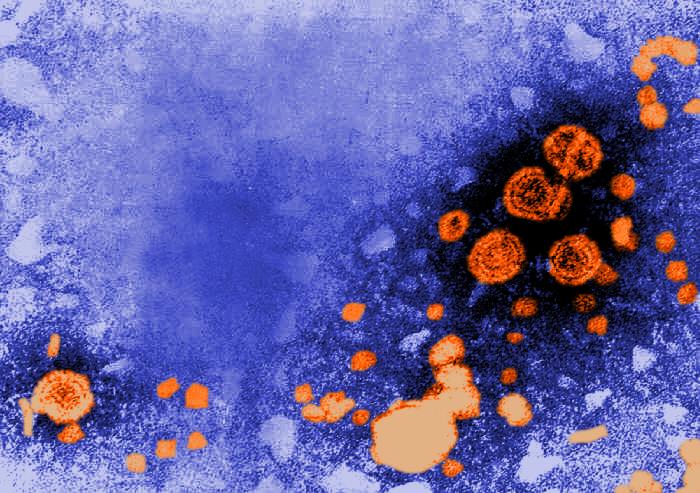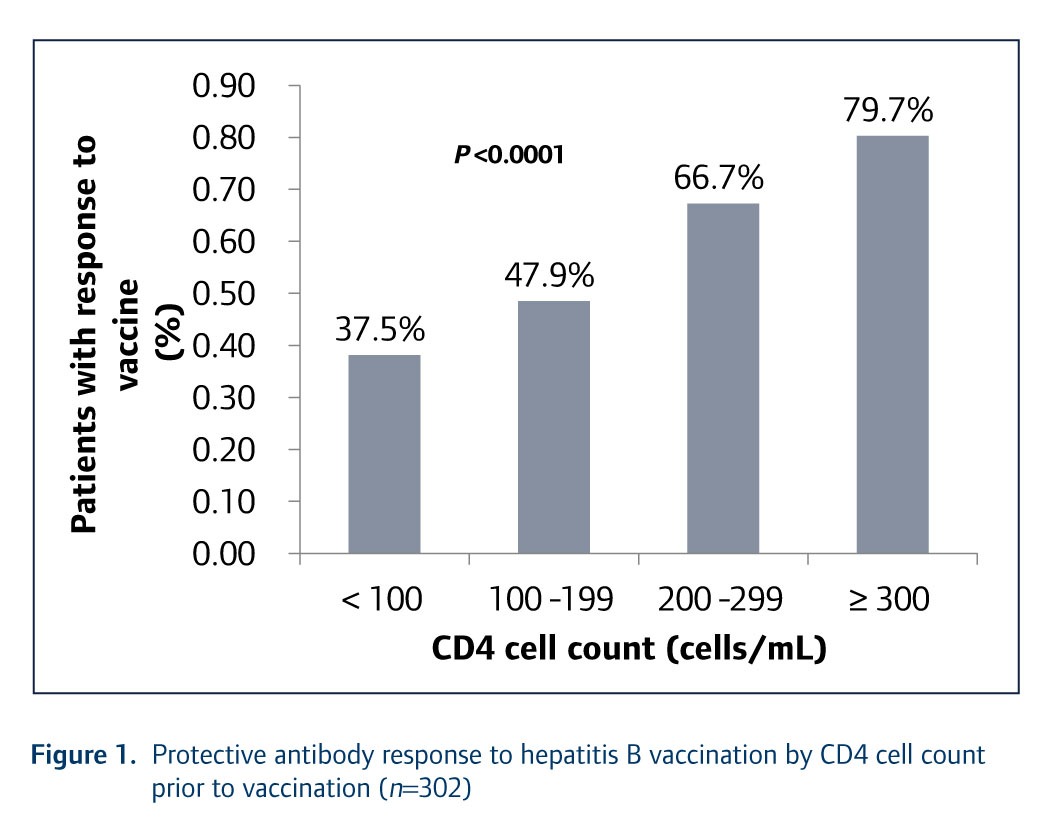 CDC
CDC Response to hepatitis B vaccination among HIV-infected adults in Vietnam
| Author List |
|---|
| TM Pollack |
| LTT Trang |
| L Ngo |
| DD Cuong |
| PT Thuy |
| DJ Colby |
Abstract
Abstract Objectives: We sought to determine the rate of response to hepatitis B (HBV) vaccination among HIV-infected adults in Vietnam. Methods: We retrospectively abstracted data from a cohort of HIV-infected adults who had received HBV vaccine at an HIV clinic in Hanoi. We examined demographic, clinical and laboratory factors for associations with development of a protective antibody (Ab) response following vaccination (defined as ‘responders’ with anti-HBs >10 IU/L). Results: Out of 302 HIV-infected patients who completed the vaccine series and follow-up serology testing, 189 (62.6%) had a positive protective Ab response. Female patients had a higher response rate compared to male patients (71.4% vs 56.8%, P=0.01). Among responders, mean CD4 T cell count was 309 cells/μL as compared to 204 cells/μL in non-responders (P<0.0001). On multivariable analysis, CD4 T cell count prior to vaccination was the only factor independently associated with a positive Ab response. Compared to patients with a count less than 100 cells/μL, those with a CD4 T cell count between 100 and 200 cells/μL were 20% more likely to be responders (relative risk [RR] 1.20, 95% confidence interval [CI] 0.77–1.87), those with a CD4 T cell count between 200 and 300 cells/μL were 61% more likely to be responders (RR 1.61, 95% CI 1.05–2.45), and those with a CD4 T cell count greater than 300 cells/μL were 89% more likely to be responders (RR 1.89, 95% CI 1.26–2.83). Conclusions: We found that the CD4 T cell count at the time of vaccination to be the sole predictor of response to HBV vaccination among HIV-infected Vietnamese adults. Our findings highlight the importance of vaccinating HIV-infected adults prior to advanced immunosuppression.
Published
Article Category
Hepatitis B (HBV)
Article Type
Original research
Posted Date
15-03-2016
| File Name |
|---|
| 1485267085jve-2-102.pdf |
Tables & Figures
| File Name |
|---|
 1460457872Pollack fig 1.jpg |